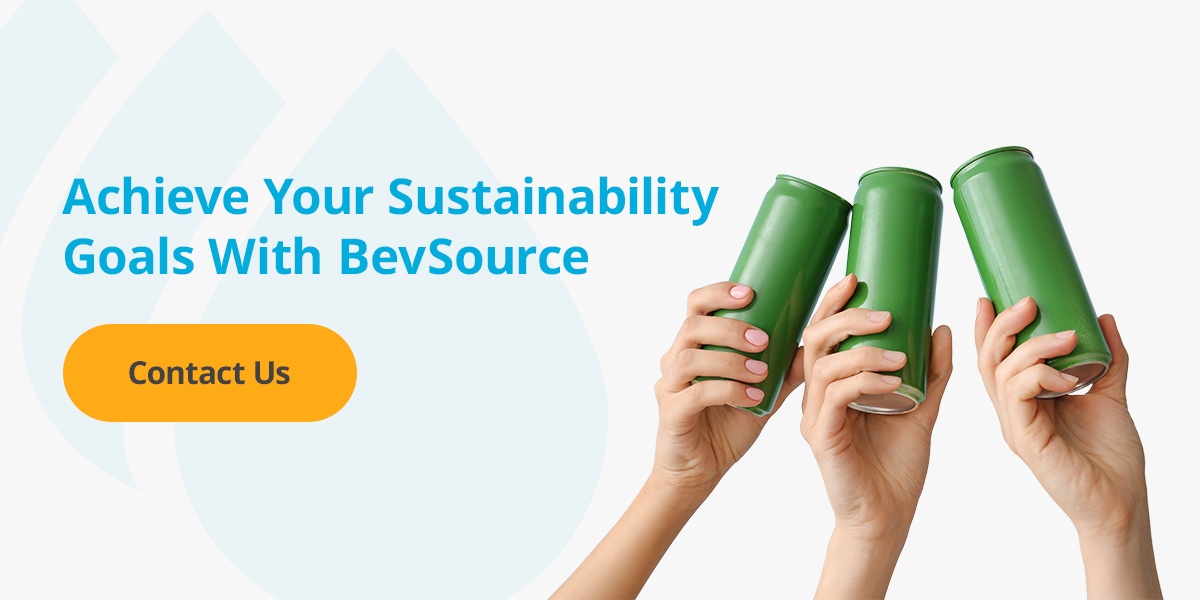Sustainable Sips: How Eco-Friendly Practices Are Shaping the Beverage Industry
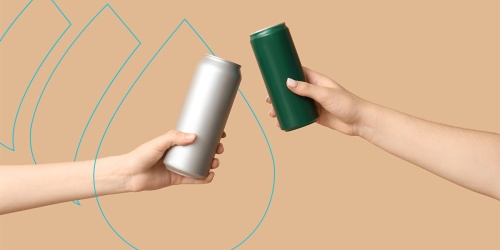
The beverage industry must innovate in a world where consumers are increasingly concerned about the environment. Globally, 66% of consumers consider sustainability before making a purchase. Consumers want to support brands that align with their values, which means brands must consider their environmental friendliness.
From production to supply chain logistics and packaging, beverage brands can adjust their practices to minimize their environmental footprints. Contributing to a sustainable future is no longer negotiable. Brands must face the associated challenges to remain relevant to an audience that places environmental health at the top of their list of concerns.
The Environmental Impact of the Beverage Industry
The global alcoholic beverage market was estimated at $1,762.12 billion in 2024. Add the nonalcoholic beverage market, estimated at $1,223.93 billion in 2023, and you get an idea of the production volume. High production volumes result in high energy consumption, substantial water use, waste generation and carbon emissions from transport. Many consumers deem this status quo unacceptable, and beverage brands must take steps to address past imbalances.
In a 2021 survey, nearly 90% of respondents expected organizations to do more to reduce their carbon impact. Many consumers believe that brands have the same amount of responsibility as governments when it comes to making positive environmental change. This consumer demand has triggered widespread change across industries, and beverage brands are no exception. Many brands are formulating eco-friendly beverages and rethinking their production and distribution strategies.
Addressing single-use plastic waste is one of the industry's most urgent concerns. Around 36% of plastic production is for packaging, and 85% of these items become mismanaged waste. To address this situation, many beverage brands are shifting from single-use plastic containers to aluminum cans and bottles, which are infinitely recyclable. They are also lighter, which reduces emissions during transportation. Globally, 75% of all the aluminum ever produced is still in productive use — a stark contrast with plastics, the vast majority of which end up in landfills.
While eco-friendly beverage packaging is only one part of an overall move toward sustainability in the beverage industry, it's an excellent place to start, alongside strategies for energy management, water conservation and sustainable sourcing. Eco-friendly packaging forms part of a sound strategy to promote sustainability across the beverage industry.
Sustainable Sourcing and Production
Consumers want labels that prove brands source ingredients ethically. Sustainability promotes trust, especially among millennials and Gen Zers. When these consumer groups believe a brand cares about its impact on people and the environment, they are 27% more likely to purchase from the brand than older generations. These generations will soon have most of the purchasing power in the United States and actively seek sustainably sourced goods from transparent and authentic brands.
Beverage brands have been quick to catch on. Some are sourcing organic and non-GMO ingredients for their beverages, which are generally more sustainable than nonorganic and GMO alternatives. Others are prioritizing partnerships with suppliers that focus on eco-friendly practices. Many are implementing rigorous screening processes for sustainability in their suppliers. Environmental and social governance has become integral to every element of beverage innovation.
Brands are also fostering positive relationships with local farmers. Sourcing locally, where possible, reduces carbon emissions associated with transportation. Relationships with sustainable farmers also support local economies, help maintain soil health and promote biodiversity. Some brands are investing in initiatives supporting farmers using sustainable farming practices, promoting diversity and reducing harmful chemicals.
Packaging Innovation and Waste Reduction
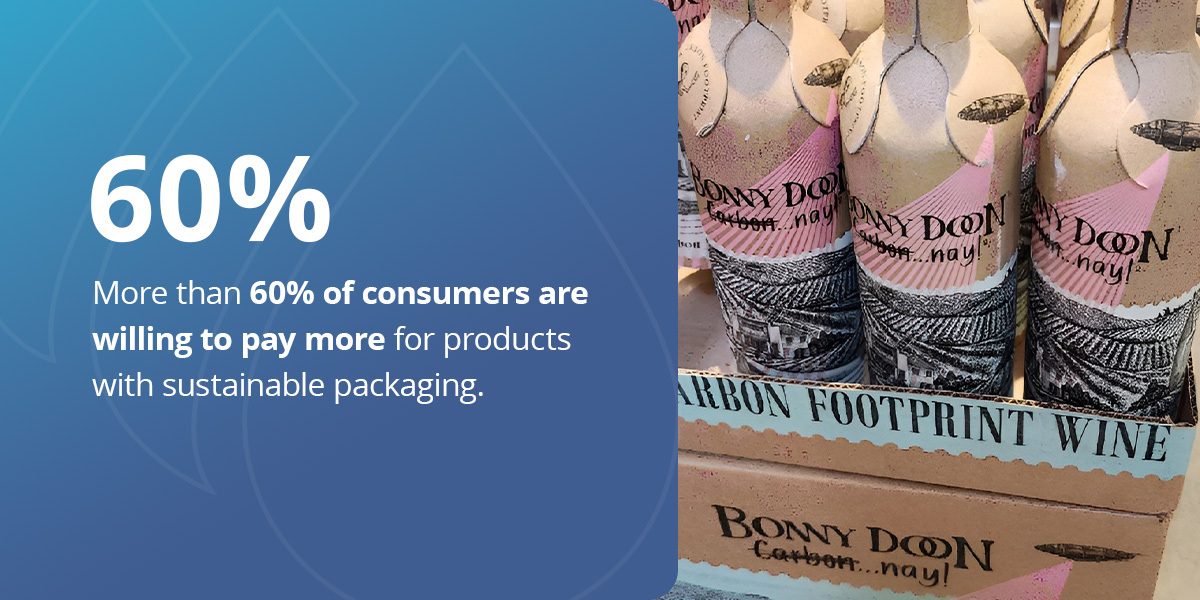
Packaging is pivotal for beverage industry sustainability. Traditional plastic packaging is heavily criticized, and 55% of consumers report being extremely or very concerned about the environmental impact of packaging. Beverage brands have a unique opportunity to appeal to these consumers, as more than 60% of consumers are willing to pay more for products with sustainable packaging. They want packaging that ticks all the boxes, from aesthetic appeal to recyclability.
The best sustainable beverage packaging solutions should be recyclable and lightweight. Recyclable materials reduce the demand for virgin resources, while lightweight materials decrease energy consumption during transportation and distribution.
Many brands are prioritizing working with manufacturers that use lean manufacturing processes to reduce waste at packaging plants. These processes include eliminating unnecessary transport, wait times and excess work-in-process inventory. A cornerstone of lean manufacturing is eliminating defects in the process flow. Any defective packaging is automatically considered waste. Even if defective packaging can be recycled, handling the packaging results in extra steps counterintuitive to sustainable energy management. Beverage brands are increasingly working with packaging partners that can streamline workflows and reduce packaging waste.
Aluminum: A Sustainable Packaging Solution
Aluminum is the answer to sustainable brand positioning in many ways. Aluminum is infinitely recyclable and could answer consumer questions about sustainability while giving them a familiar purchase experience. Packaging beverages using recycled aluminum reduces the need for virgin materials. Using recycled cans to make new cans also uses 95% less energy than producing cans from bauxite ore — the raw material used to make aluminum.
Aluminum cans have the highest recycling rate of all beverage packaging, and an industry-leading 45% are already being recycled. This material can be reprocessed continuously without any degradation in performance or quality. In addition to the sustainability benefits, aluminum chills faster than other packaging formals, provides a complete barrier against light and oxygen and offers a large, printable surface area. It's also portable and shatterproof, perfect for active lifestyles.
Energy Efficiency and Renewable Energy
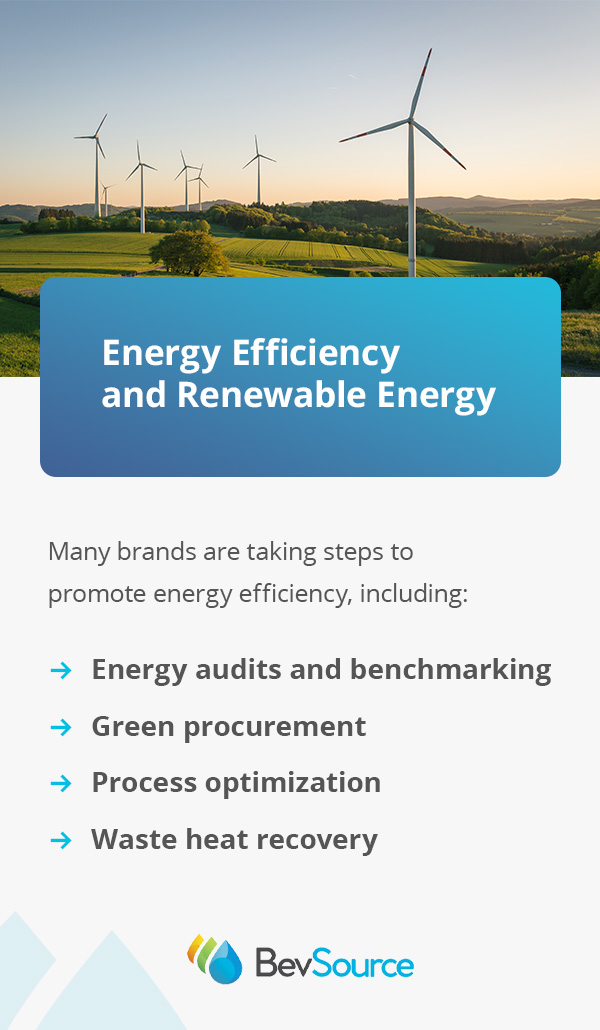
Food and beverages have an enormous impact on the environment and account for a significant portion of global energy use. Blending, heating, cooling, storing, packaging and delivering are all energy-intensive processes. With 67% of Americans prioritizing the development of renewable energy sources, renewable energy is a nationwide focus. Brands must also consider how they power their processes.
Many brands are taking steps to promote energy efficiency, including:
- Energy audits and benchmarking: Assessing current energy performance is the first step to improving energy efficiency. An energy audit is a systematic analysis of a facility's energy use that reveals its energy-saving potential. Benchmarking involves comparing energy performance to other brands or industry best practices, allowing brands to set achievable targets and learn from competitors.
- Green procurement: Green procurement is the process of selecting providers and purchasing products that reduce environmental impact. For example, brands can buy energy-efficient equipment or source more sustainable organic ingredients.
- Process optimization: Optimizing and automating beverage production processes is an effective way to manage energy consumption. Brands can find the optimal operating conditions and parameters for responsible energy use while maintaining quality and output. Technological advancements also mean brands have access to sensors, controllers and software that monitor and control energy-efficient processes without human intervention.
- Waste heat recovery: Beverage production processes result in significant energy loss as heat. Waste heat recovery mitigates these energy losses by capturing and reusing the waste heat for other purposes, including electricity generation.
Water Conservation and Management
Clean water is integral to making even the simplest beverage. For example, making a single gallon of beer can require up to 7 or 8 gallons of water. While water is an essential ingredient, it is just as vital in processing, packaging and cleaning.
With water shortages on the horizon, brands should examine their water footprints alongside their carbon footprints. In addition to helping brands meet sustainability objectives, water management benefits organizations by improving the quality and availability of water-based products and creating a unique strategic advantage as water costs rise.
Sustainability begins with measuring the current impact. Brands must first measure their existing water footprints, efficiency and river friendliness. Once they know where they can improve, they can take action. Many are reducing the amount of water waste used in product development, switching to air-based cleaning and redesigning the packaging process to make sustainability part of every action.
Other ideas include participating in conservation and cleanup efforts and setting goals for water reuse. Coca-Cola, for example, announced three water security goals to achieve by 2030 — achieve 100% circular water use across 175 "leadership locations," improve the health of 60 critical watersheds, and return 2 trillion liters of water to nature and communities globally.
While brands take steps to manage their water footprints, water use within the supply chain remains challenging. Many are looking beyond their own water management and assessing its use within the supply chain. Agricultural production is particularly water-heavy, and brands are working with farmers to integrate management protocols that minimize overuse and nutrient pollution. For example, in 2023, PepsiCo and Walmart formed a partnership to support U.S. and Canadian farmers in their pursuit of improving water quality and soil health.
Consumer Education and Behavior
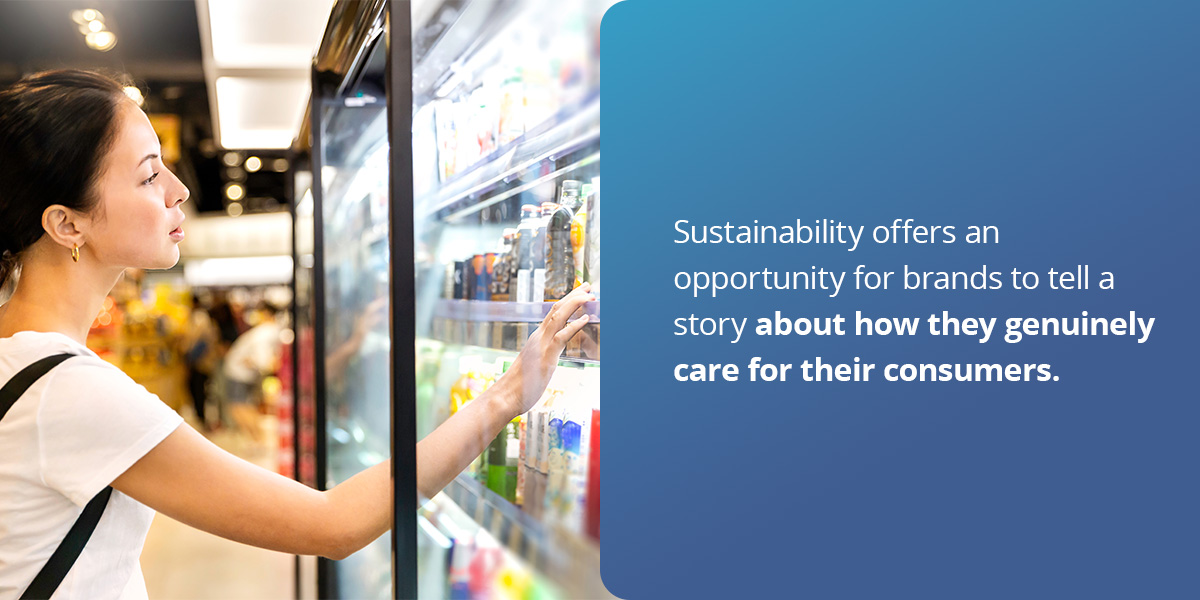
Consumers are more conscious of sustainability than ever before. They're calling for transparency across the supply chain — the onus is on brands to deliver. Brands can answer the call through communication, involving consumers in their sustainability journeys. They can invite consumers to explore their sustainability goals and practices, partly to educate and partly to showcase their aligned goals.
Sustainability is about more than risk mitigation for brands. It also provides an avenue into new markets and offers a way to generate revenue. A solid commitment to health and sustainability is a sound marketing strategy that benefits the planet and future generations — a win-win.
Establishing an emotional connection is also important for engaging consumers. Sustainability offers an opportunity for brands to tell a story about how they genuinely care for their consumers. Authentic stories are invaluable, especially amid growing skepticism of online green claims. Brands can put human faces and data behind their stories to highlight their impact on consumers.
While consumers value the recyclability of packaging, many lack an understanding of packaging symbols and are still determining the actions they should take to recycle effectively. Again, beverage brands have an opportunity here. In addition to telling a story about their sustainability practices, brands can make it easier for consumers to participate in sustainability initiatives themselves. Educating consumers on sustainable practices, recycling and the benefits of choosing eco-friendly products builds trust and empowers consumers to make informed purchasing choices.
The Social, Economic and Reputational Impact of Sustainability in the Beverage Industry
Food and beverage sustainability trends are here to stay. Although beverage brands are willing to improve their sustainability efforts, progress could be faster, and challenges exist. Highly complex supply chains make sustainable procurement a significant hurdle. Many brands are focusing on a more resilient and sustainable supply chain, but complete visibility remains a challenge. Additionally, many brands are still using legacy software to gather data. However, they need more sophisticated systems that provide actionable insights and enable them to formulate a realistic and achievable sustainability roadmap.
Despite these challenges, brands continue to sharpen their sustainability efforts. The incorporation of sustainability principles has had a profound environmental impact, which is encouraging since most strategies are in their relative infancy. Many brands have significantly reduced their emissions and minimized waste, proactively preserving the planet's resources and meeting consumer demands.
Switching to sustainable packaging and practices is good for the Earth but has far-reaching implications for beverage brands. Consumers are increasingly aware of the condition of their environment. They show increased loyalty to brands who care and are motivated to take action. Brands that have yet to make sustainability part of their core value proposition should revisit their strategy to protect their long-term resilience. Measuring sustainability's importance in their customers' purchase decisions is a logical first step.
Eco-friendly practices are shaping every aspect of the beverage industry, and brands can only adapt to these changes. With consumers driving the demand for products that align with their values and stakeholders pushing brands to take a stance on climate change, brands can expect more external pressure in upcoming years. The sooner they align with the new status quo, the better they will meet consumers' needs.
Achieve Your Sustainability Goals With BevSource
Eco-friendly practices have considerable benefits for beverage brands. However, many challenges remain in making these concepts a reality. As an integrated provider of beverage development, sourcing and production solutions, BevSource can help you bridge the gap between your current operations and sustainability goals.
With our vast network of beverage packaging suppliers, we can package your product with a purpose. We can provide the most sustainable and innovative options within your budget. We optimize your supply chain with sustainable sourcing and procurement services. Let us turn your sustainable beverage concept into reality. Contact our BevSource specialists today!
